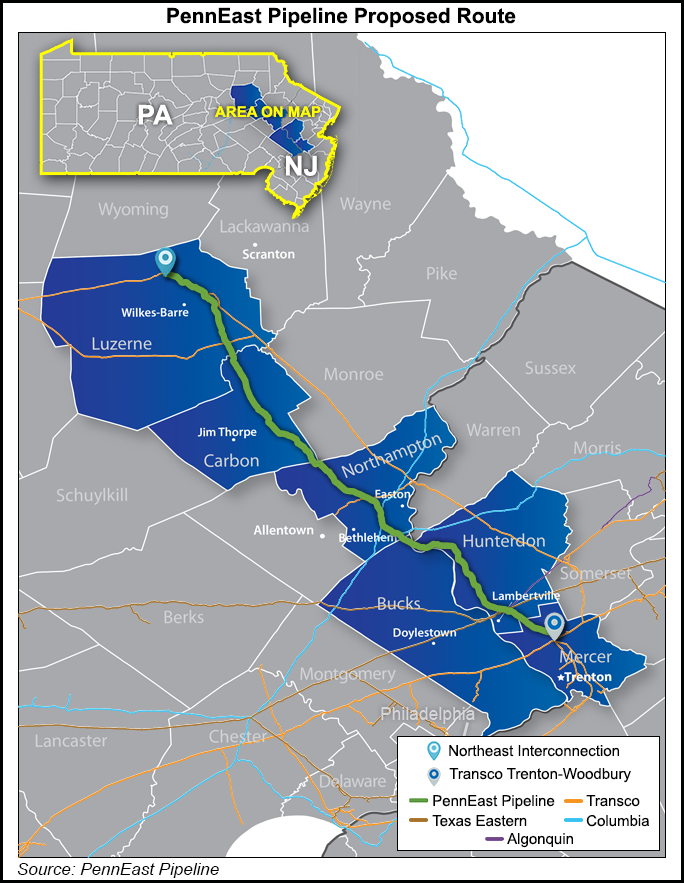Infrastructure | NGI All News Access | NGI The Weekly Gas Market Report
PennEast Construction Now Slated for 2020 as Key Permits Still Pending
PennEast Pipeline Co. LLC has refiled for key water quality permits with the New Jersey Department of Environmental Protection (DEP) more than two years after the agency denied the first application.

The 120-mile pipeline would move more than 1 Bcf/d of natural gas to markets in Pennsylvania and New Jersey. About one-third of the project would be located in Hunterdon and Mercer counties, NJ.
The project, certificated by FERC in January 2018, has been in the works for about five years as it’s battled through a number of delays. Project spokesperson Patricia Kornick told NGI this week that the company is aiming to start construction next year, which is expected to take seven months.
PennEast refiled a freshwater wetlands permit application last week for a water quality certification (WQC) and other key authorizations needed before the project can move ahead.
“At least 246 professional engineers, environmental scientists and certified experts with more than 4,000 years of combined experience compiled the approximately 24,000-page technical application through on-the-ground analyses,” Kornick said, adding that the documents demonstrate that the pipeline can be built safely with minimal environmental impacts.
PennEast was forced back to the drawing board in June 2017 after the DEP closed its environmental review of the application. The agency determined that the application was incomplete given a lack of landowner permission to survey parts of the proposed route. At the time, the company had been targeting a late 2018 in-service date.
New Jersey Resources, a partner in the project, said in its fiscal third quarter earnings release that all the land surveys have finally been completed. The new 24,000-page application was filed after dozens of meetings, conference calls and other communications with the agency, Kornick added. The route in New Jersey, the company said, would now largely utilize power corridors and roadways to lower overall environmental impacts.
PennEast is one of several Northeast pipeline projects working through regulatory and legal issues, such as the Mountain Valley Pipeline, Atlantic Coast Pipeline and the Northeast Supply Enhancement Project (NESE).
New Jersey joined New York earlier this summer in denying NESE’s WQC application. The state has also fought PennEast in court to block the project’s access to land it owns and asked the Federal Energy Regulatory Commission in 2018 to scrap its certification for the pipeline.
© 2024 Natural Gas Intelligence. All rights reserved.
ISSN © 1532-1231 | ISSN © 2577-9877 | ISSN © 1532-1266 |
